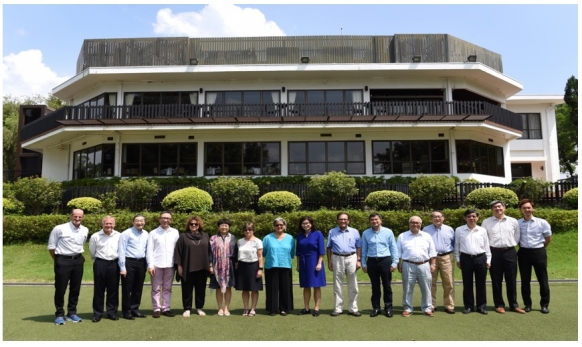Health Equity Asia 2.0 - New Framework for Social Justice in Health

The social movement for health equity became a core dimension of global health two decades ago, and since that time, overall health progress in Asia and globally has been substantial. However, its benefits have not been equitably shared. One reason is that overall health gains have dominated the priorities (e.g. Millennium Development Goals, Sustainable Development Goals) and social justice in health has not ranked as highly. Another reason is that much of the research documenting health inequalities has not been impactful, as it largely focuses on “gradients” showing differences in health status according to various social determinants, like income quintiles. These factors suggest that a new vision is needed for accelerating greater equity in health, one that is inspiring, energizing, and passionate.
To lay the groundwork for a new approach to health equity – Health Equity Asia 2.0 – a high-level group of leaders held a retreat September 12-13 in Hong Kong with subsequent discussions December 3-4 in Cambridge, Massachusetts. Asia is a global leader in the 21st century. Participants included representatives of institutions in Hong Kong, mainland China, India, Japan, Singapore, and Thailand; and international leaders from the fields of global health, human rights, and foreign policy.
The group focused on how to think, communicate, and act upon the idea of justice in health, with the aim of mobilizing and harnessing commitment for greater fairness in health. The agenda for health equity, participants agreed, should focus on tangible issues that people understand, such as people left behind; new inequalities, such as those experienced by an aging population or who confront unfairness in prevention and treatment of non-communicable diseases; and emerging disruptions, such as the application of breakthroughs in IT and biotechnology and the power of social movements.
Three basic strategic approaches were discussed:
- Building on the effort of ongoing headline social health movements in order to strengthen global health priorities: universal health coverage (UHC), health equity, containing health crises, and mitigating anti-microbial resistance.
- Targeting high-level policy-makers to adopt a “supply-side approach” of investing in health for economic, trade, and security reasons. If feasible, the strategy should resonate beyond health to include core national priority sectors.
- Community-based empowerment, using a bottom-up, “demand-side approach,” communicated by, from, and to the grassroots.
The proposal is to mobilize leadership for Health Equity 2.0 that is scientific, multidisciplinary, and multinational – spearheaded by a group of thought leaders, mostly Asian but including some key global figures. The strategy would be developed over the course of 2-3 years and the initiative’s concluding report would present a bold vision and practical recommendations and cite successful models that bring reality to abstract concepts.
Health Equity Asia 2.0 complements the goals of CMB’s Equity Initiative. The Equity Initiative nurtures a new generation of health equity leaders in Southeast Asia, while Health Equity 2.0 brings senior thought and social leaders for policy and action.
